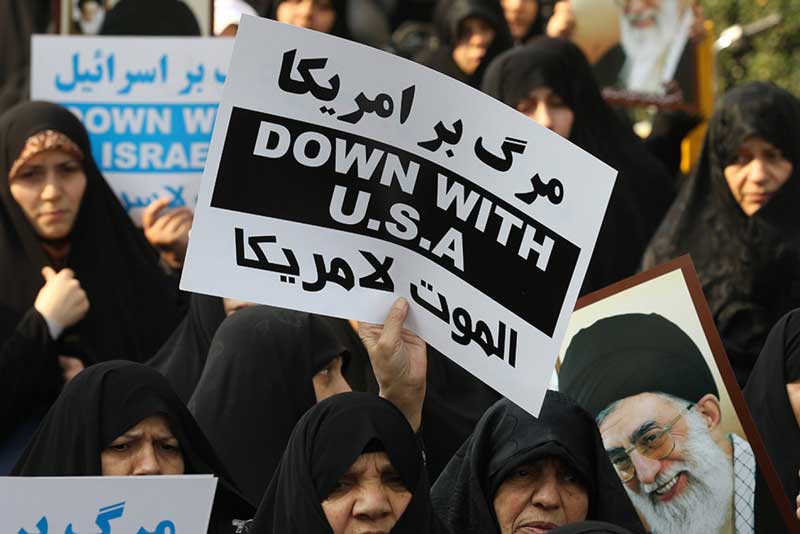As President Barack Obama and Iran’s mullahs move closer to an ill-defined and wholly unverifiable deal to reign in Tehran’s nuclear program, states are stepping up to impose economic sanctions on their own on Iran – sanctions that will remain in place as long as Iran’s leaders chant “Death to America” and pledge to wipe the Israel off the map.
In fact, nearly two dozen U.S. states moving ahead with their own sanction regimes to derail negotiations even as President Obama seeks to side step the United States Senate over treaty ratification and take the matter directly to the United Nation’s Security Council where a resolution threatening the existence of Israel could pass with U.S. support.
Leading the fight are Kansas and Mississippi who are considering tougher sanctions than those already in effect.
These states, along with others across the country, are putting measures in place to punish Iran-linked companies operating in certain sectors of its economy. Sanctions would prevent investment of public pension funds worth tens of billions of dollars in assets from investing firms that do business with Iran and bar the country from bidding on public contracts.
In most cases, state restrictions will only expire if all federal sanctions against Iran are lifted – an unlikely outcome since Congress must act to lift punitive financial restrictions on a state that sponsors terrorism despite wishful thinking within the Obama Administration on the issue.
Other states involved in the effort include Georgia, Florida and Michigan that are all moving to change their policies on Iran even if the Obama Administration claims to make “progress” on a diplomatic deal. Florida State Senator Don Gaetz, (R) told Reuters that:
“Our investment sanctions are not tied in any way to President Obama’s negotiations with the Iranians…They would have to change their behavior dramatically and we would not be necessarily guided by President Obama or any other president’s opinion about the Iranians.”
Pols in New York and Oregon told Reuters they would need to review any diplomatic deal on Iran’s nuclear program before commenting on changes to their current policies. The same is true for Illinois and Connecticut – states that would need to enact new legislation before legal changes could be made to change their divestment policies.
For a taste of things to come, Florida has already pulled $1.3 billion out of companies like PetroChina – an oil and gas company with extensive economic relations with Iran. Michigan followed by selling its $185 million stake in companies like HSBC and Vodafone from its pension fund portfolio.























